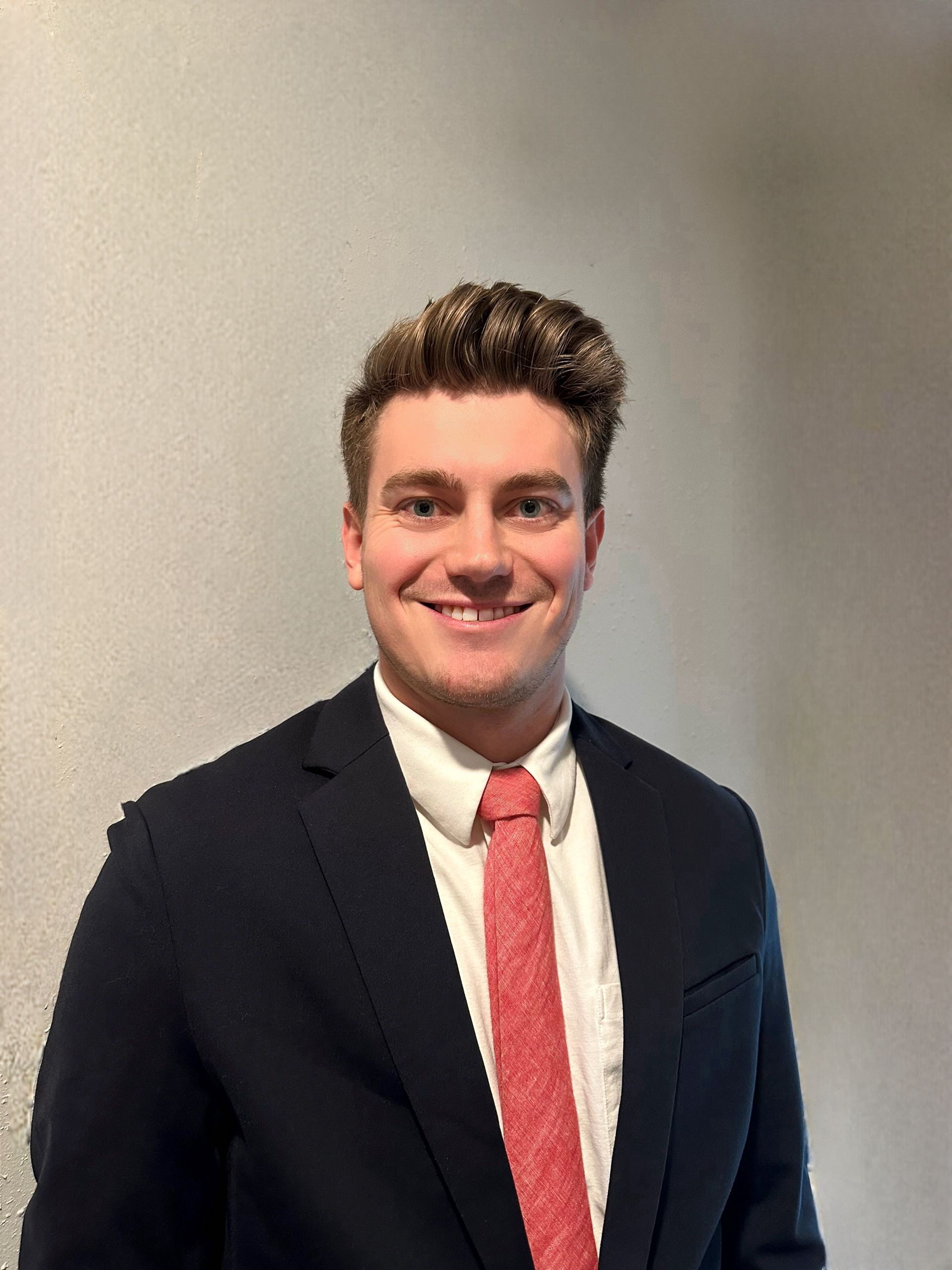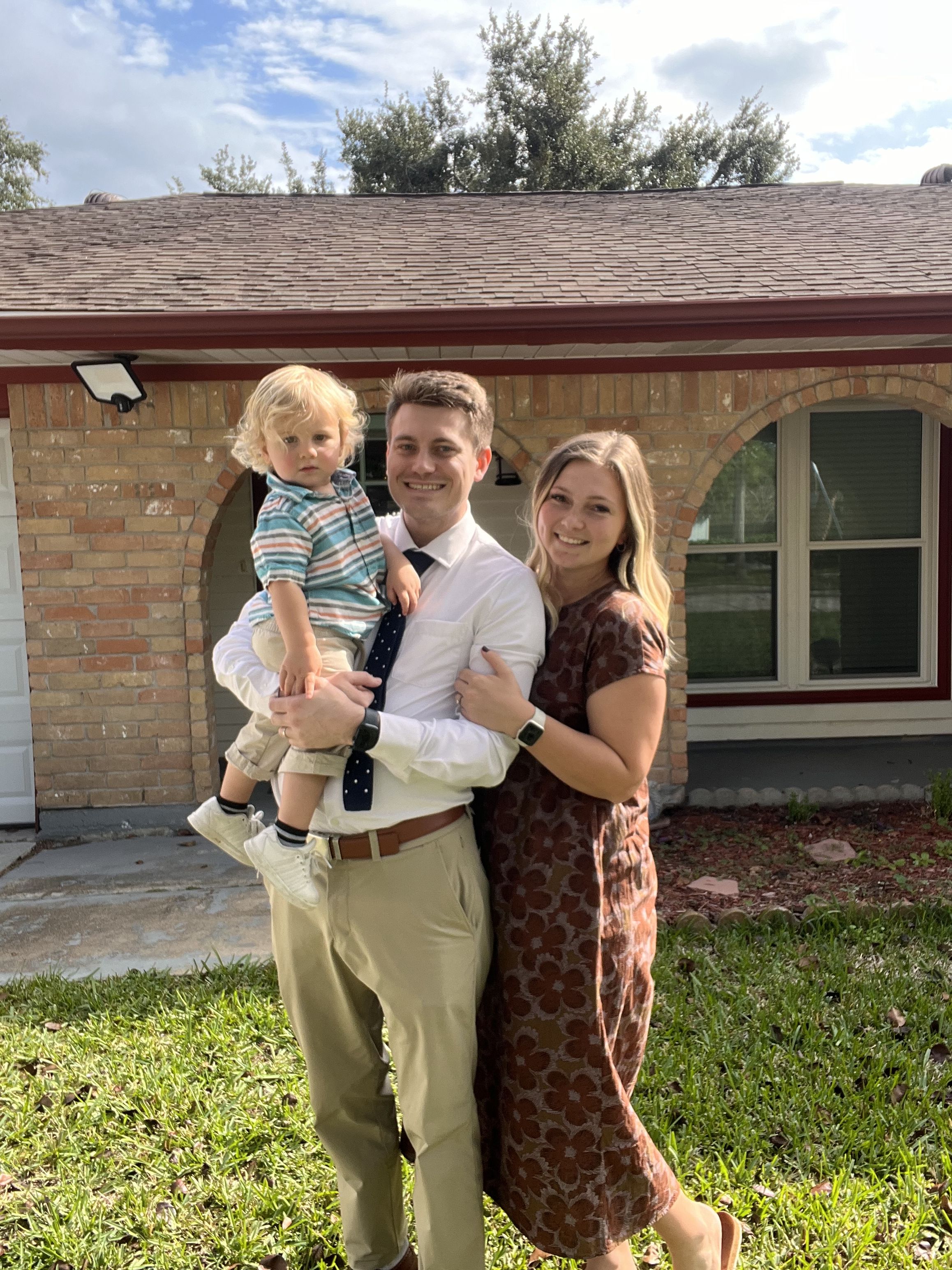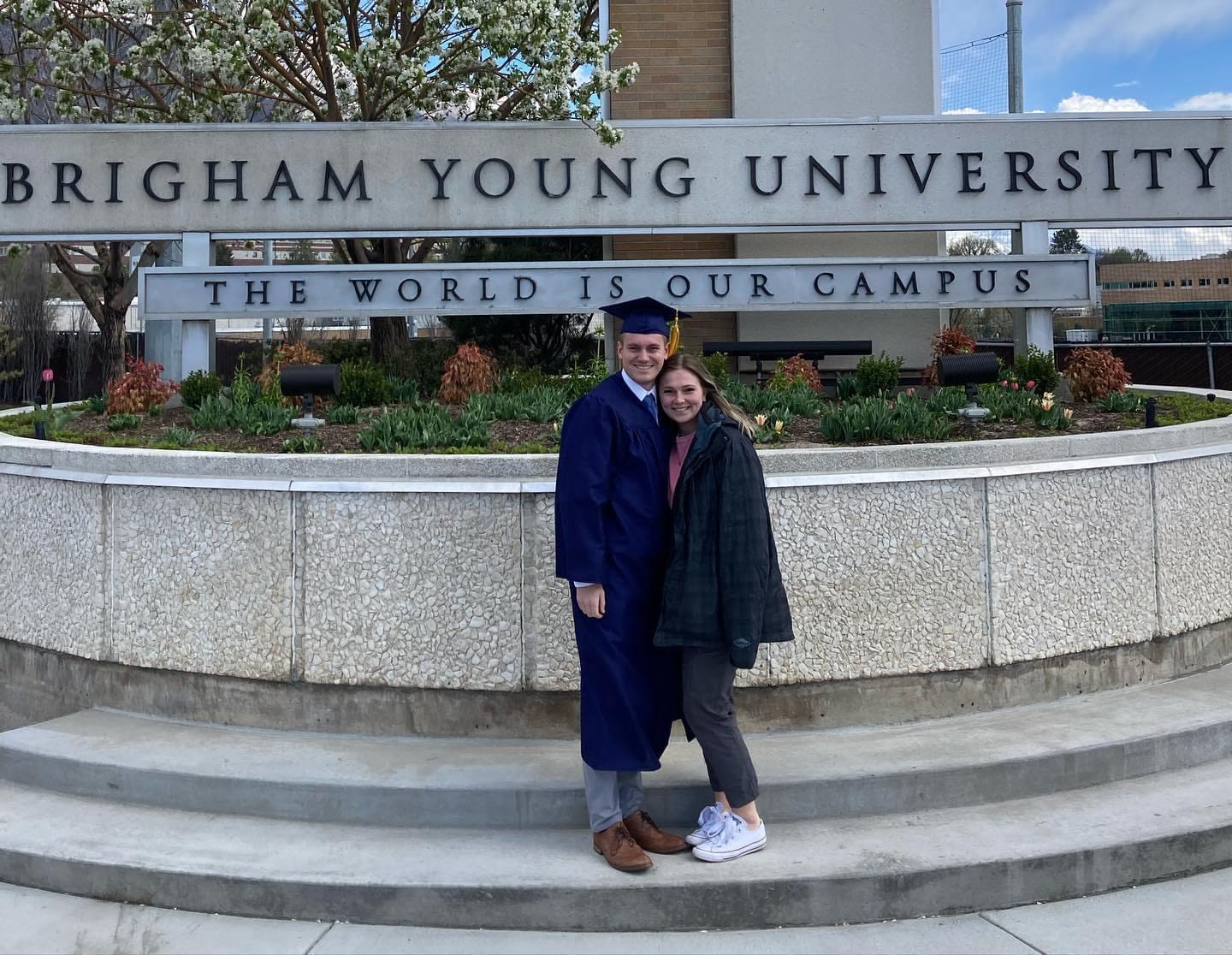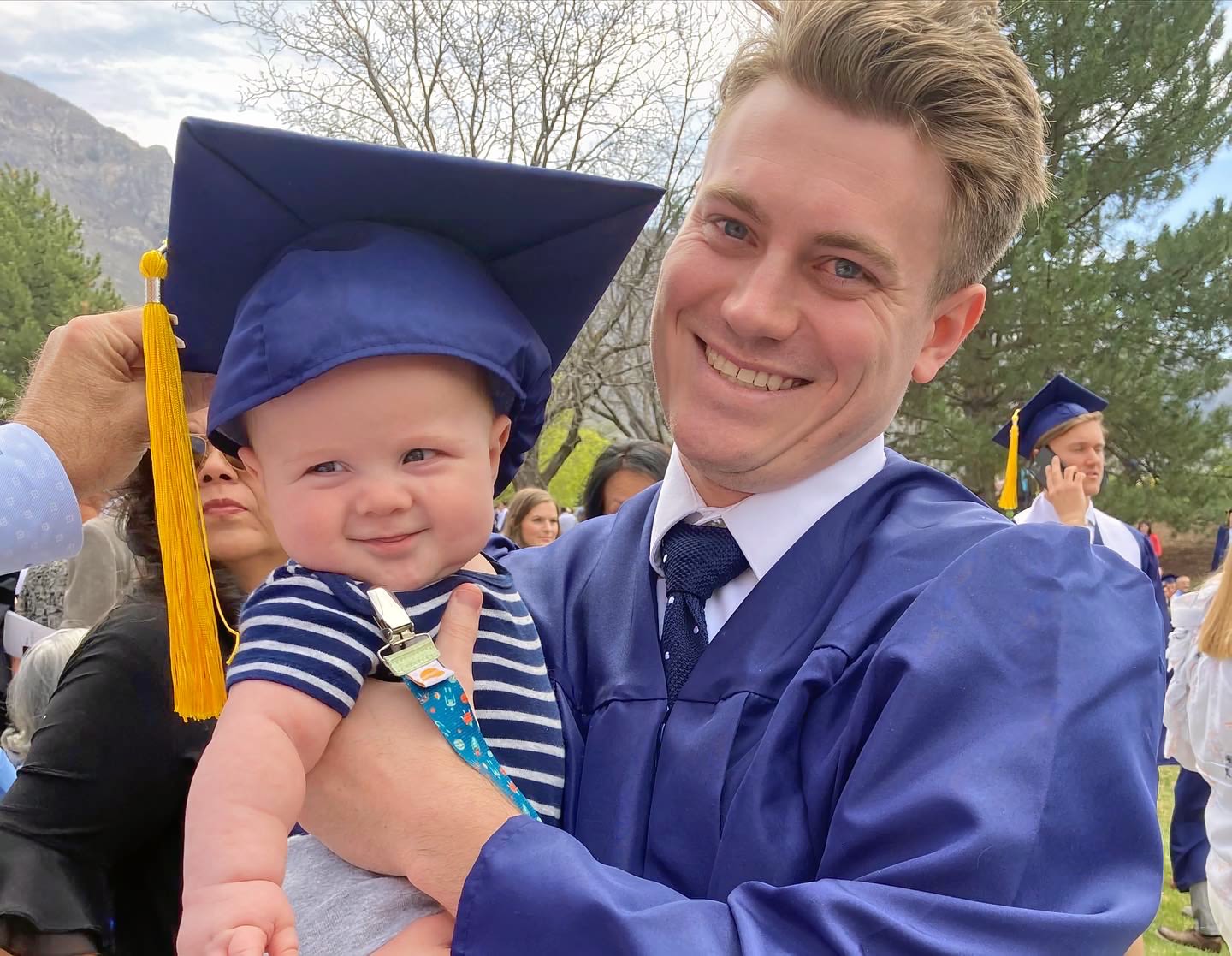Building a Promising Future
Brady Mills (J.D. Candidate ’25) Ventures into Intellectual Property Law

Brady Mills (J.D. Candidate ’25) didn’t always plan on becoming a lawyer. In fact, as an undergraduate, he studied chemical engineering. He changed his trajectory when he recognized law school as a path to a more fulfilling and promising future for him and his family.
“One of the big reasons I went to law school is being able to bridge engineering and law together. Intellectual property law will give me opportunities to learn new technologies and to create innovative arguments inspired by innovative technology. It’s a field that’s never going to stop changing.”
As a husband and a father to a two-year-old and a scholarship recipient, Mills believes that practicing intellectual property law will benefit his family.
“I appreciate the stability that comes with having a legal education and being able to eventually help people and work in a field I’m interested in. This is a great career and a great way to provide for my wife and kids.”

Mills credits his science background with his analytical approach to deciding which law school to attend. While he initially received a scholarship to the University of Houston, it didn’t match what other schools had offered. However, he chose UH because it offers a strong intellectual property program, ranked in the U.S. News and World Report Top 10. He also found it favorable in terms of sustainability, affordability and diversity.
“Being able to talk with people of different backgrounds and have a good conversation was an important factor in my decision,” Mills explains. “I wanted to learn in a place that wasn’t too liberal or too conservative, a place where we could have conversations, and it wasn’t just everybody in their echo chamber.”
Through dedication and hard work, Mills earned additional scholarships, including the Dean’s Scholarship, the Roxella T. Cavazos Endowed Scholarship and the Billie J. Ellis Jr. Scholarship, all of which relieved his financial stress and enabled him to focus solely on his studies.
“I am very devoted to what I want to do. I’ve always been that way. It means a lot that I can apply myself to achieve the grades and the goals I want because I don’t have to work at the same time.”

When discussing the significance of scholarships and their transformative potential for students’ futures, he encourages donors to give, regardless of the amount and regardless of the recipient.
“It’s amazing to realize that people care about your education and are willing to help you through it when they see nothing directly in return.

“You might be giving to someone who is just out of undergrad, single and has no family, and that’s great. You might be giving to someone who is 40 years old, on their second career and with a three-kid family.
“You never know, and no matter what, it’s just a blessing in that person’s life,” he shares, emphasizing the emotional impact of donor support.

